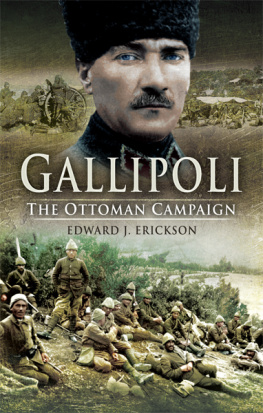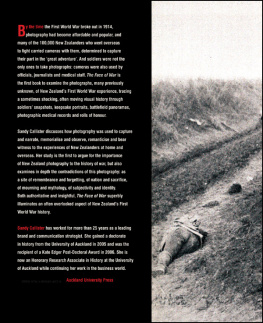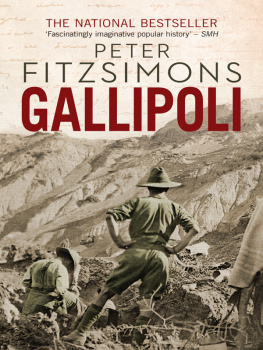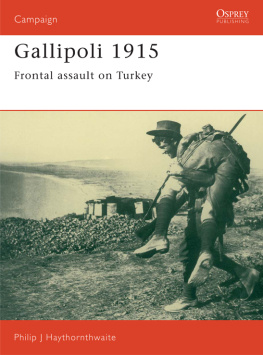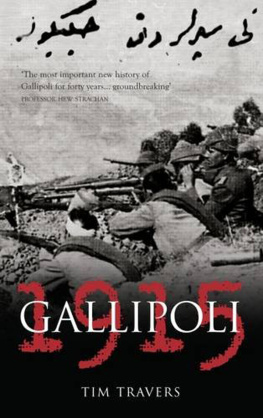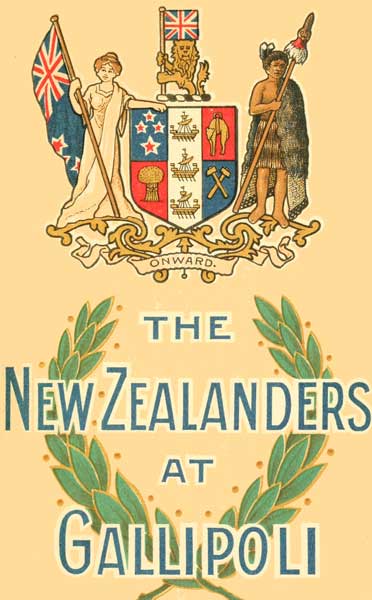Major Fred Waite - THE NEW ZEALANDERS AT GALLIPOLI--An Account of the New Zealand Forces during the Gallipoli Campaign
Here you can read online Major Fred Waite - THE NEW ZEALANDERS AT GALLIPOLI--An Account of the New Zealand Forces during the Gallipoli Campaign full text of the book (entire story) in english for free. Download pdf and epub, get meaning, cover and reviews about this ebook. year: 2017, publisher: Abela Publishing, genre: Romance novel. Description of the work, (preface) as well as reviews are available. Best literature library LitArk.com created for fans of good reading and offers a wide selection of genres:
Romance novel
Science fiction
Adventure
Detective
Science
History
Home and family
Prose
Art
Politics
Computer
Non-fiction
Religion
Business
Children
Humor
Choose a favorite category and find really read worthwhile books. Enjoy immersion in the world of imagination, feel the emotions of the characters or learn something new for yourself, make an fascinating discovery.
- Book:THE NEW ZEALANDERS AT GALLIPOLI--An Account of the New Zealand Forces during the Gallipoli Campaign
- Author:
- Publisher:Abela Publishing
- Genre:
- Year:2017
- Rating:3 / 5
- Favourites:Add to favourites
- Your mark:
THE NEW ZEALANDERS AT GALLIPOLI--An Account of the New Zealand Forces during the Gallipoli Campaign: summary, description and annotation
We offer to read an annotation, description, summary or preface (depends on what the author of the book "THE NEW ZEALANDERS AT GALLIPOLI--An Account of the New Zealand Forces during the Gallipoli Campaign" wrote himself). If you haven't found the necessary information about the book — write in the comments, we will try to find it.
In the introduction he wrote These popular histories of New Zealands share in the Great War are designed to present to the people of New Zealand the inspiring record of the work of our sons and daughters overseas.
The movements of the ANZACs are traced from their various points of departure around New Zealand, via Australia to Colombo, Aden and through the Red Sea and the Suez Canal to eventual disembarkation at Alexandria, Egypt. After a spell of training in Egypt, the Anzacs were shipped across the Mediterranean to the Gallipoli peninsula in the Dardanelles in Northwest Turkey with an objective to capturing the peninsula as a prelude to invading Turkey and capturing Istanbul.
Waite details the landing of the ANZACs on 25 April 1915, the many skirmishes and drives to get the upper hand and the eventual evacuation in December 1915. Also included are many photographs of the terrain, encampments and maps to put the images into context, all of which give the reader a good feel for layout and the conditions being experienced by the troops. To this day, 25 April is celebrated in New Zealand and Australia as Anzac Day.
The Dardanelles were known in Classical Antiquity as the Hellespont, and in effect forms the continental boundary between Europe and Asia. Their importance was recognised as far back as 482BC. Herodotus tells us that at this time Xerxes I of Persia (the son of Darius the Great) had two pontoon bridges built across the width of the Hellespont at Abydos, in order that his huge army could cross from Persia into Greece. History also tells us they were vital to the defence of Constantinople during the Byzantine period of History (330AD 1453AD). Their importance was also recognised by the Ottoman Empire (1354AD 1922AD) which was allied to Germany during the Great War, hence the attempt by the Allies to wrest control of the Dardanelles from Turkey in 1915.
Major Fred Waite: author's other books
Who wrote THE NEW ZEALANDERS AT GALLIPOLI--An Account of the New Zealand Forces during the Gallipoli Campaign? Find out the surname, the name of the author of the book and a list of all author's works by series.


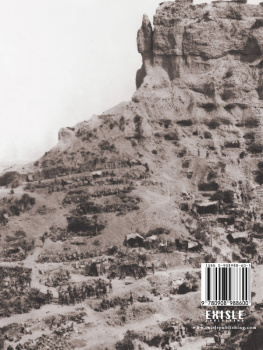
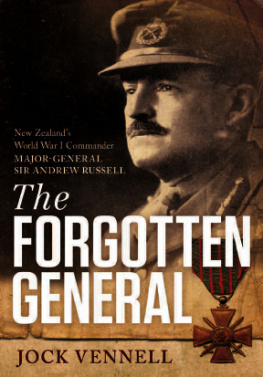
![Lt Col C. G. Powles - THE NEW ZEALANDERS IN SINAI AND PALESTINE [Illustrated Edition]](/uploads/posts/book/399129/thumbs/lt-col-c-g-powles-the-new-zealanders-in-sinai.jpg)


